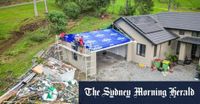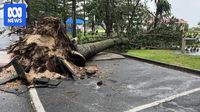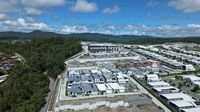In the aftermath of ex-Tropical Cyclone Alfred, communities across South East Queensland and northern New South Wales are in recovery mode, and a multi-faceted response has emerged in the wake of the storm's destruction. Contrastingly, while many faced challenges in restoring normalcy, a private residential wireless 5G network in an over-50s community demonstrated remarkable resilience. This sophisticated network, deployed by Prospecta Utilities at GemLife Gold Coast, managed to maintain connectivity amid chaos, while major carriers struggled. Mark Langdon, the CEO of Prospecta Utilities, highlighted the importance of diversifying telecommunications infrastructure, stating, "More than 300,000 homes lost power as a result of ex-tropical cyclone Alfred, with thousands of residents impacted by phone and internet outages due to the reliance on just a few major carriers using the same networks and power source." The mmWave network at GemLife Gold Coast operates off-grid, enabling uninterrupted service while traditional networks were crippled.
The positive performance of this network, which combines a 5G core with mmWave radios, underscores a substantial advancement in digital connectivity. Residents have reported internet speeds up to 650 megabits per second (mb/s), significantly faster than the typical household speeds of 50 to 100 mb/s. Langdon asserted that maintaining diverse telecommunications options is crucial in protecting populations from the adverse effects of natural disasters. After a six-month trial, the network was established last month for 45 homes at the GemLife Gold Coast, part of an ambitious AUD $200 million project that will ultimately connect 400 residences. Furthermore, there are plans to extend this technology to 14,000 homes across 30 land lease resorts throughout Queensland, New South Wales, and Victoria by 2028.
Meanwhile, the City of Gold Coast has begun assessing the damage to its trees, particularly the protected Norfolk Island pines, after the cyclone's strong winds uprooted many plants. So far, one in five of these trees assessed has been deemed unsafe; in total, 50 Norfolk Island pines will be taken down due to the storm's damage. Councillor Gail O'Neill confirmed that early discussions about replacing the trees started promptly. "Do we plant them back in the roadway, like some of them are, or do we plant them in the park area?" she pondered. These trees hold historical significance, having been planted as early as the 1930s. The timber from the trees will be repurposed into woodchips, with plans to ensure replacement trees are planted in more favorable conditions.
As communities recover, another pressing concern has emerged: the presence of disaster chasers. NRMA Insurance has issued warnings regarding these exploitative entities that prey on victims during vulnerable recovery periods. Julie Batch, CEO of NRMA Insurance, stated, "It’s a sad reality that disaster chasers mobilise quickly after an extreme weather event... They deliberately exploit vulnerable customers and promise to fast-track their home and vehicle insurance claims." Disaster chasers can charge management fees of up to 20 percent on insurance claims, despite existing free services designed to assist claimants. Andrew Hall, CEO of the Insurance Council of Australia, underscored the seriousness of this issue, noting it exacerbates challenges faced by affected individuals.
Legal Aid Queensland and financial counselling services have stepped in, urging caution against these unscrupulous operations. They advise that all insurance complaints processes are available for free and encourage individuals to seek assistance if they suspect scams or feel exploited. Moreover, advice is being provided, including things to watch out for to avoid being taken advantage of by disaster chasers.
Among the local physical impacts of the cyclone, the Kyogle landfill is reopening on March 24 but will only accept limited types of waste for the next few weeks, as the facility was damaged during the cyclone. It will accept small quantities of household waste while commercial and bulky waste disposal will be unavailable. The Council will transport household waste from the area for safe disposal during this interim period. This scenario reflects the ongoing and wide-ranging repercussions of the cyclone.
Having made landfall approximately two weeks ago, ex-Tropical Cyclone Alfred catalyzed a response from various sectors aiming to restore a sense of normalcy. The integrated recovery efforts, including resilience in telecommunications infrastructure, tree replanting discussions, and efforts to protect individuals from exploitation, illustrate a holistic approach in tackling the aftermath of natural disaster. As communities focus on rebuilding, the challenges they face reinforce the importance of innovation, strategic planning, and community solidarity in overcoming adversity.




